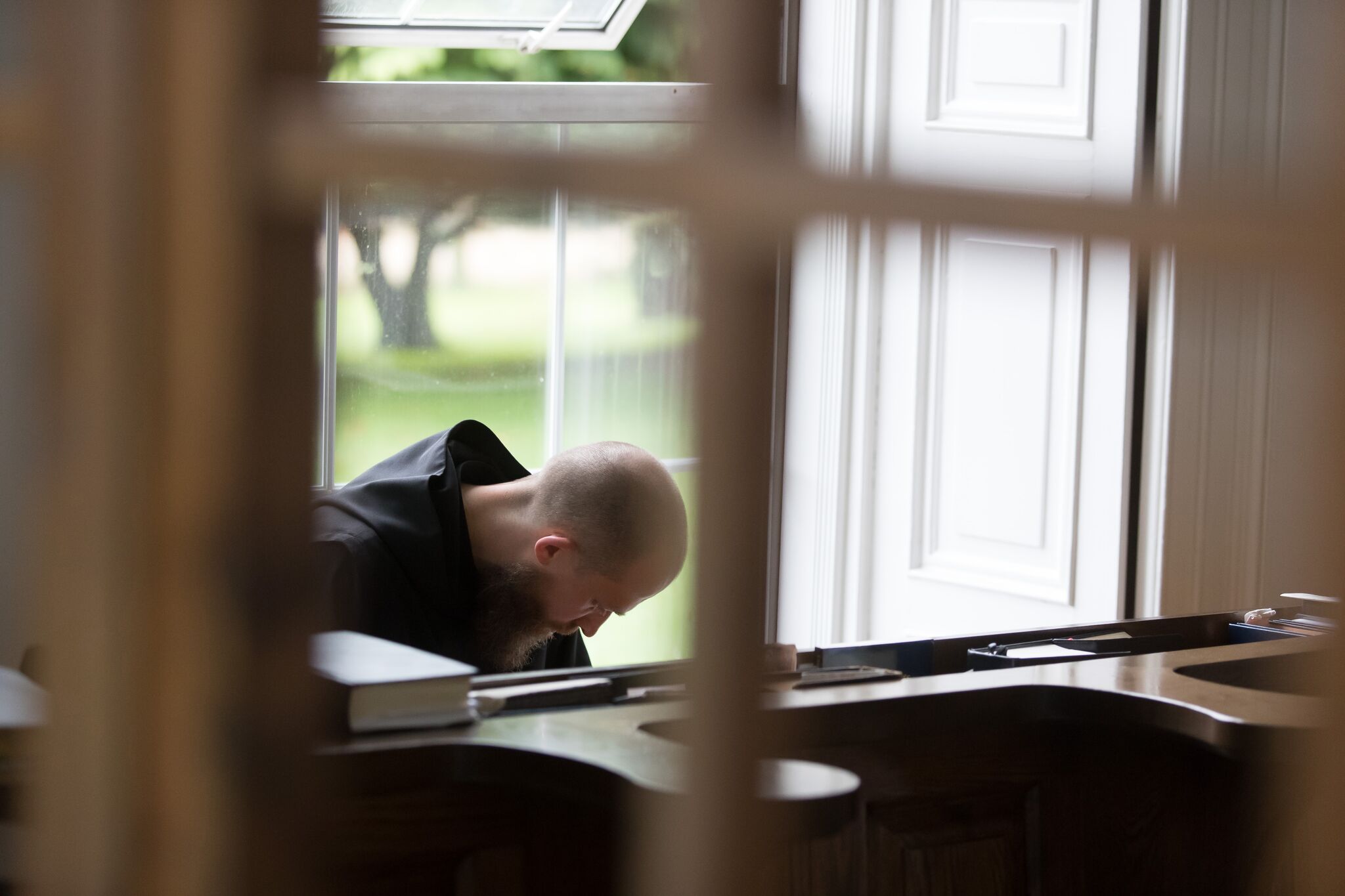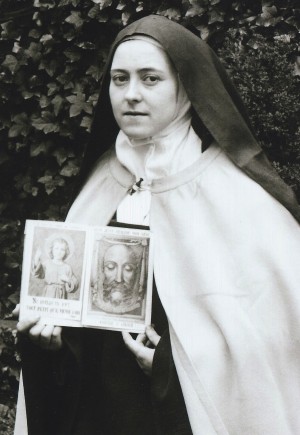Who is the man that will have life? (Prologue 3)

3 Jan. 4 May. 3 Sept.
And the Lord, seeking His own workman in the multitude of the people to whom He thus crieth out, saith again: “Who is the man that will have life, and desireth to see good days? And if thou, hearing Him, answer, “I am he,” God saith to thee: “If thou wilt have true and everlasting life, keep thy tongue from evil and thy lips that they speak no guile. Turn from evil, and do good: seek peace and pursue it. And when you have done these things, My eyes will be upon you, and My ears will be open to your prayers; and before you call upon Me, I will say unto you, “Behold, I am here.” What can be sweeter to us, dearest brethren, than this voice of the Lord inviting us? Behold in His loving-kindness the Lord sheweth unto us the way of life.
Today Saint Benedict shows us God in search of man. The mystery of God in search of man is as old as the first pages of Genesis in which God walked in the garden in the cool of the evening, and called to Adam, causing him to hide with Eve among the trees.
And now they heard the voice of the Lord God, as he walked in the garden in the cool of the evening; whereupon Adam and his wife hid themselves in the garden, among the trees. And the Lord God called to Adam; Where art thou? he asked. (Genesis 3:8–9)
The voice of the Lord God in paradise is echoed in the voice of Wisdom crying aloud in the open streets:
Wisdom preacheth abroad, she uttereth her voice in the streets: at the head of multitudes she crieth out, in the entrance of the gates of the city she uttereth her words, saying: O children, how long will you love childishness, and fools covet those things which are hurtful to themselves, and the unwise hate knowledge? Turn ye at my reproof: behold I will utter my spirit to you, and will shew you my words. (Proverbs 1:20–23)
Saint Thérèse heard Wisdom’s voice in the same book of Proverbs, and it enchanted her and gave her hope:
Si quis est parvulus, veniat ad me.
Whosoever is a little one, let him come to me. (Proverbs 9:4)
In the Gospel, Eternal Wisdom with a human face and a human voice, the Word Incarnate, pursues the search and gives voice to the divine invitation:
And on the last, and great day of the festivity, Jesus stood and cried, saying: If any man thirst, let him come to me, and drink. (John 7:37–38)
The same mystery is shown us in the parable of the householder, who went out early in the morning to hire labourers into his vineyard. (Matthew 20:1-16). It is revealed with a particular poignancy in the words of Jesus that we repeat in, among other places, the Office and Mass of the Sacred Heart, Venite ad me omnes qui laboratis, et onerati estis, et ego reficiam vos.
Come to me, all you that labor, and are burdened, and I will refresh you. Take up my yoke upon you, and learn of me, because I am meek, and humble of heart: and you shall find rest to your souls. For my yoke is sweet and my burden light. (Matthew 11:28-30)
I refer to all of these passages by way of showing the harmonics that resonate in today’s portion of the Prologue. A monastic vocation begins not with a man who wants to do something with his life, but with God who has something He wants to do with a man’s life. The invitation comes from God, and the initiative is His. I do not mean by this that God does not make use of personal encounters, books, and images in drawing us to Himself and in inviting us to live for Him alone. God gives souls a certain attraction for the things He waits to give them. The French, who have such a refined vocabulary for the life of man with God, speak of les attraits spirituels, that is, of certain spiritual attractions. God makes use of all these things and, even more, God plants in a man’s heart the very thing that He would have a man desire. God gives both the desire and the fulfilment of the desire that He has given. Saint Thérèse says, “More than ever, I understand that the smallest events of our life are conducted by God; He is the One who makes us desire and who grants our desires.”
At certain hours of life, God seems to leave us pulled towards conflicting desires. Not all desires come from God. Affective deficits from childhood can drive a man to desire illusory things that promise happiness but, in end, make a man feel even more empty. Even after having given themselves to God, monks are not immune from conflicting desires. What to do when these conflicting desires seem to cause a fragmentation of the heart or an interior restlessness? One must, as Saint Benedict says in the First Degree of Humility, lay our desires before the Lord. “And in regard to the desires of the flesh, we must believe that God is always present to us, as the prophet saith to the Lord: “O Lord, all my desire is before Thee.”
In every man’s life there are moments when, looking at his personal history darkly, he can see nought but a trail of wreckage. Such moments can be occasions of grace, provided that we stop, wash our eyes in the pure water of the Word of God, and wait in darkness and in silence for our vision to come into focus again. There is a text of Saint Teresa-Benedicta of the Cross (Dr Edith Stein, 1891–1942) that always comforts me when, looking over my life, I see no more than a long series of contradictions, false starts, and apparent failures. The martyr of Auschwitz writes:
Whatever did not fit in with my plan
did lie within the plan of God.
I have an ever deeper and firmer belief
that nothing is merely an accident
when seen in the light of God,
that my whole life down to the smallest details
has been marked out for me
in the plan of Divine Providence
and has a completely coherent meaning
in God’s all seeing eyes.
To be a child of God,
that means to be led by the Hand of God,
to do the Will of God, not one’s own will,
to place every care and every hope in the Hand of God
and not to worry about one’s future.
On this rests the freedom and the joy of the child of God.
But how few of even the truly pious,
even of those ready for heroic sacrifices, possess this freedom.
When night comes, and you look back over the day
and see how fragmentary everything has been,
and how much you planned that has gone undone,
and all the reasons you have to be embarrassed and ashamed:
just take everything exactly as it is,
put it in God’s hands and leave it with Him.
Then you will be able to rest in Him –really rest —
and start the next day as a new life.

